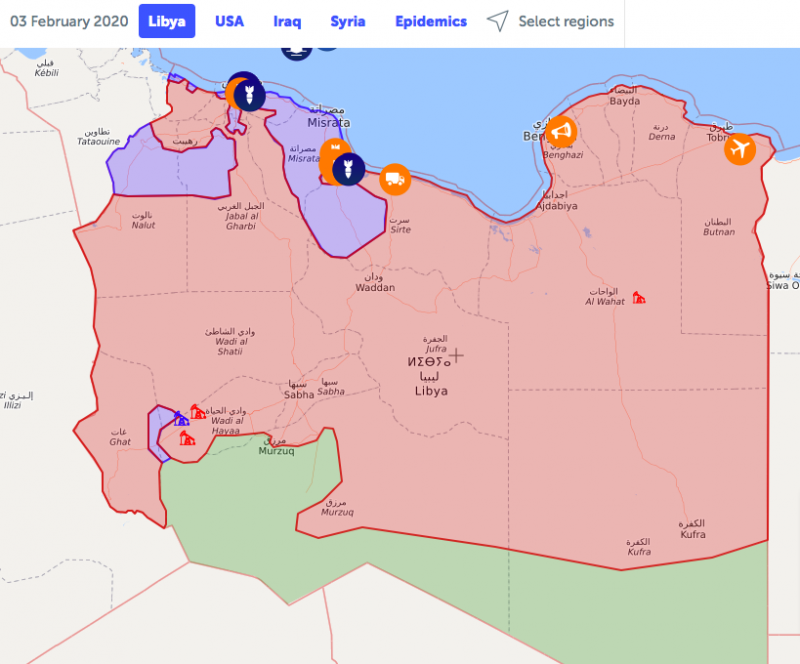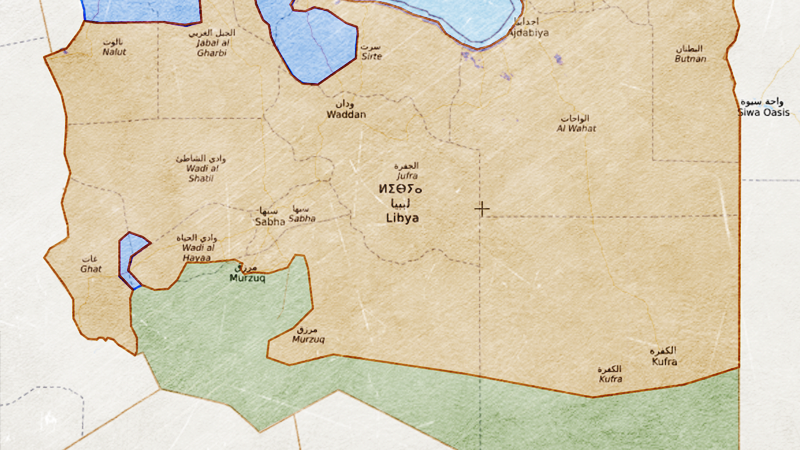Mehmet Yuva, a professor at Damascus University, responded to our questions about the crisis in Libya.
After a call for a ceasefire on January 9th which was mediated by Turkey and Russia, and the temporary ceasefire on January 13 following the Moscow talks, world leaders met in Berlin on the 19th to discuss the Libyan crisis. The Berlin Conference ended with the announcement of a 55-article declaration, however, the declaration was not satisfactory to all parties involved. As a result, various resolutions for the future of Libya are still being discussed.
Is there a solution for the Libyan crisis? What is the key to finding a real solution? What were the results of the Berlin Conference? We discussed these questions with Professor Mehmet Yuva.

How do you evaluate the current crisis in Libya?
In order to better understand the Libyan and even the Syrian issue, it is necessary to analyze the Turkey’s relations with Russia on the perspective of a strategic alliance. We can say that Russia and Turkey, which are on the opposite fronts in Syria and Libya, use these oppositions for the interests of both the countries. Turkey is the most significant country in terms of support for the Sarraj Government, which is considered the “legitimate government” in Libya. It seeks to protect its economic and security interests in Libya and the Eastern Mediterranean. Russia, on the other hand, is the most significant country protecting and funding the Benghazi-based Government of Haftar, which controls the vast majority of the country. In spite of that, the two countries have sat at the negotiation table and tried to reach a consensus and to find a solution. Thus, a ceasefire has been declared.

These scenarios are not a fiction that has been planned and implemented before. They are the result of original circumstances and obligations. The two countries are building strong bilateral relations and integrating their interests in all areas that have a common ground, making it essential for Moscow and Ankara to adopt policies without conflict, seeking negotiation and reconciliation to resolve the regional problems. This suggests that equations in the region will be held on the Moscow-Ankara axis.
Can Turkish and Russian interests coincide in Libya?
Turkey has finally officialized its long-time military and intelligence support with a parliamentary decree and has “legitimized” its current military presence in Libya with an invitation from the Tripoli Government. In addition to this, with the maritime border agreement signed with the same government, the country has obtained the right to joint use of the energy resources. Russia, on the other hand, is the biggest supporter of the Haftar Government and its army, which controls the vast majority of Libya. It is understandable that Russia is taking actions against efforts that could potentially limit its energy potential, which is the country’s most important source of revenue. Libyan and Eastern Mediterranean energy sources are monopolized by the United States-Israel and its allies, keep in mind.
Turkey and Russia’s interests in Libya can be collated thanks to cooperation between the two countries, and the Libyan war can be ended in accordance with the interests of Moscow and Ankara. There is no doubt that these joint efforts will be challenged by many states, particularly the United States and Israel.
How do you evaluate the Berlin Conference?
The main goal of the West is to eliminate Russia and Turkey in Libya. That is why they are not in favor of reconciliation, and in fact, support a continuation of the conflict. They do not want the crisis to be solved, and do not want Turkey and Russia to help reach a consensus. They are even afraid of the ceasefire, which is why there were no results from that Conference. All the same, the future of this region is no longer determined by these conferences. The Moscow-Ankara axis will be decisive in this case, just as the decision making center shifted from Geneva to Astana during previous conflicts. Turkish-Russian cooperation will be decisive in resolving the Libyan crisis, just as it was in Syria.









Leave a Reply